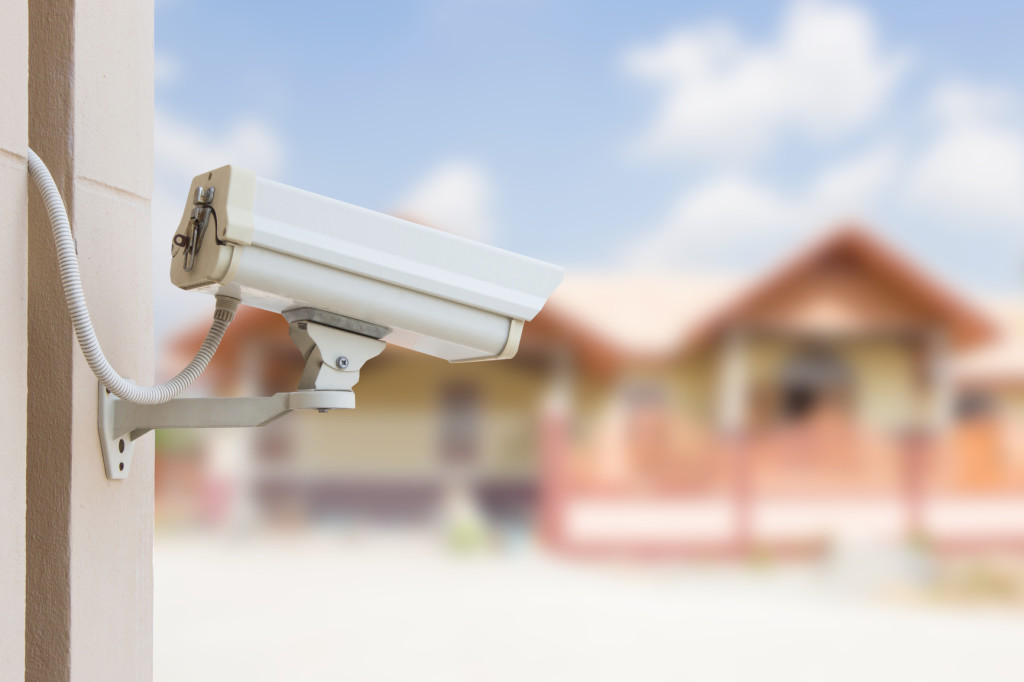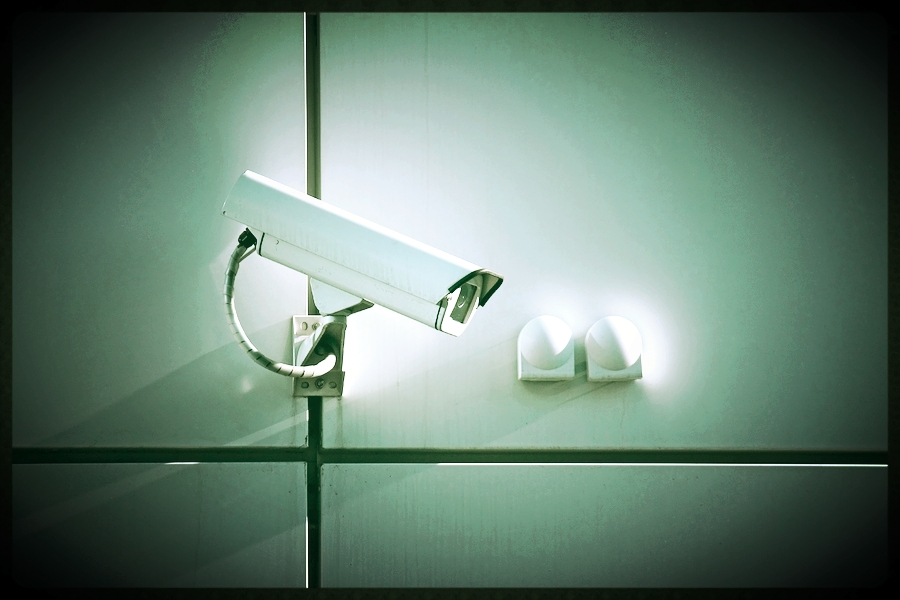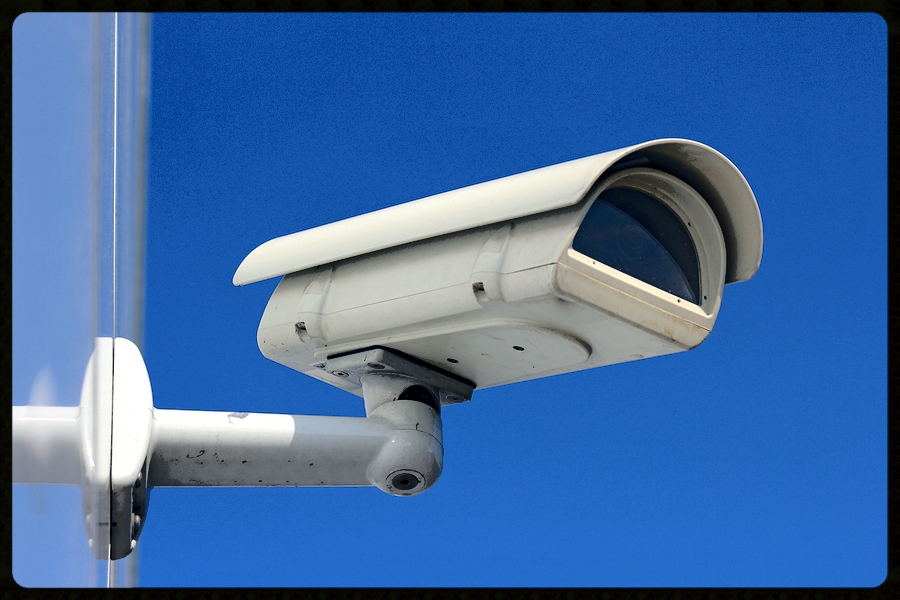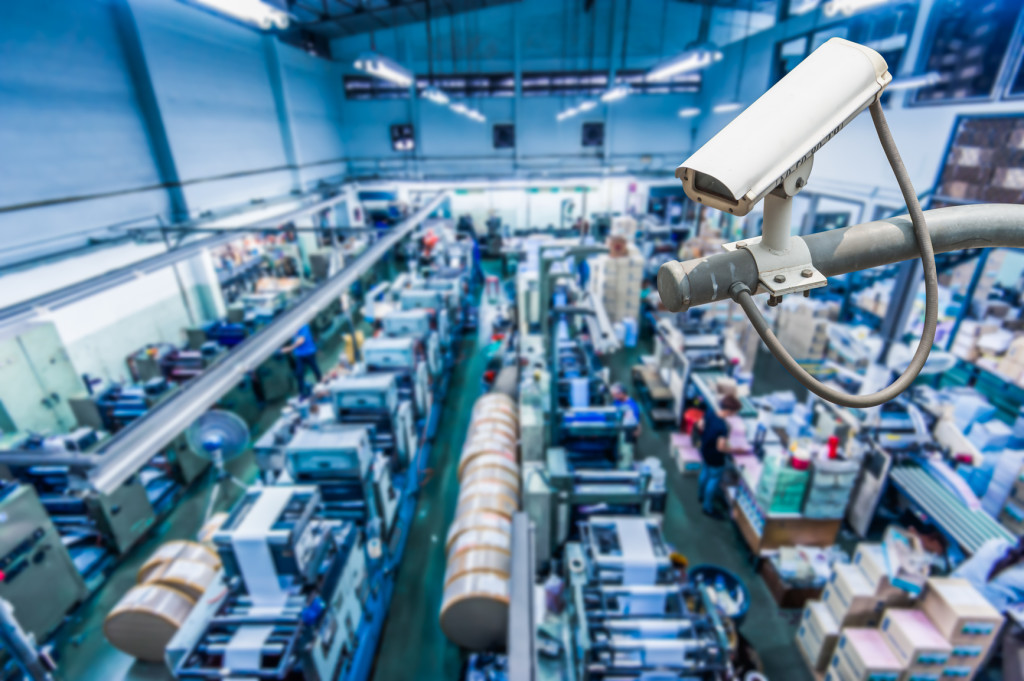The post Interview: CCTV Systems – All You Need To Know Before Buying appeared first on Security Search - Home and Commercial Security.
]]>
This is part 2 of our 2 part series (part 1 on home alarms here) where we interview John McMenamin – owner of Protec Security and Alarms in Auckland
Our interview covers both residential CCTV systems and commercial CCTV setups – click here to jump straight to the commercial discussion
Residential CCTV Systems
SS: CCTV has traditionally been for commercial applications so I guess we’re seeing a lot more coming through for more popular domestic use. Aside from the decrease in price do you think there’s many other reasons for their increase in popularity in homes?
John: Yeah, the definite drop in price has seen people put them in domestic situations and also the popularity of the internet now where you can whack a webcam anywhere and view it online. That’s been adapted to the security industry where you have cameras inside houses looking at babies and dogs and also intruders can be put through to monitoring companies now.
It’s getting more popular.
SS: You mentioned Protech specializes in one particular brand of security cameras in New Zealand. Can you tell me a little bit about that particular brand?
John: Yeah, we use Hikvision and Sony both because they’re good and very well priced but there’s a lot of product out there and it’s changing monthly so we may sort of revisit that again.
SS: Now are there any brands that tend to lend themselves better to home versus commercial applications?
John: There are a lot of very expensive cameras that are used commercially and in schools ,they are just over priced for a domestic situation.
But it’s more to do with being robust and handling the weather if they’re outside, maintaining good color definition long term. But they are getting cheaper and better so a lot of the top specs you’re finding in cheaper cameras now, so it pays to know what you’re looking for, that’s all.
Definitely cheaper options.
SS: Now you mentioned sort of the maintaining the color long term, what’s the average life of one of these residential cameras?
John: Well black and white will last probably eight years. Color ones – less because of the color gradient weakening, the sun takes out the color. They are changing all the time and getting better so in two or three years time we’ll be getting very, very good cameras very cheaply.
SS: Now what are your top selling CCTV systems for home use?
John: The top selling camera system is two cameras outside, or one outside and one inside. Outside camera gets the car on the driveway, number plate On the inside usually in the hallway or a situation where you can see what’s happening inside.
SS: Now what sort of CCTV systems would you recommend for a standard, three bedroom, single story home? What are the sort of costs and how would this differ from a commercial, retail or storage system warehouse?
John: There’s not a lot of difference nowadays. Basically you have a DVR, which is like a little computer that hooks up to the internet and a camera that patches into that. Two cameras seems to be the way to go for domestic situations but we have had situations where we’ve put six or eight in all around the house, depending on the customers requirement. But you want to identify someone that’s there, get a good headshot if you can.
SS: Now talk to me a little bit about monitoring costs for the CCTV as well
John: The monitoring is basically the alarm being monitored because you need to be triggered in some way for the monitoring company to patch in and look at the cameras.
So that has to go hand in hand with CCTV. It’s only another $5 a month where you monitor the CCTV which means if the alarm goes off they’ll hook in and look at the cameras and maybe call you or the police.
Commercial CCTV Systems
SS: Traditionally it’s been banks and large retail, what sorts of business are you finding are using CCTV these days, John?
John: The price has dropped to a state now that basically anyone that’s in business is putting CCTV in to watch staff, customers or intruders
SS: Do you recommend IP or analog systems or does it depend on the situation, what’s the trend?
John: It’s again prices dictating it. Analog has been the traditional way of doing it. IP was high end at one stage but the price is dropping now. Definitely better as it’s a digital picture all the way through. In the future IP would be the way to go because the price has dropped low enough to make analog obsolete
SS: I guess it’s old technology now isn’t it, analog?
John: Yeah, getting that way but still some people prefer it because they can’t afford IP.
SS: Resolution camera lens discussion. What sort of resolution do we need to see faces and license plates?
John: Depends on the lighting as well, it’s a hard question
Generally most cameras will get you a decent headshot, off the shelf cameras that is, and car number plates are hard to get. At night time and when it’s wet and raining you will need to spend money to get good quality.
SS: When would you install a hardwired versus a wireless security camera solution at the moment?
John: Hardwired is always the best way to go. Can’t really beat it. Only use wireless if you can’t get a wire there, in a remote area. They are getting clever where you can get wireless solar powered cameras now which will be the future. It’s hooking into the wifi system for installation, that’s all in its infancy as well.
SS: What’s your view on single cameras which record onto SD cards, do you recommend people install these and are they a good option for small businesses?
John: Once again it’s very price oriented. If you are trying to catch someone they have hunting cameras which record onto cards and you’ll get a little bit of footage, motion sensor operated.
They have their place but yeah, it’s just a lot of time taking cards in and out and making sure they’re going to be working because you have no way of checking if they have broken down.
SS: Comes down to cost again doesn’t it?
John: It’s all to do with the cost for cameras.
SS: Obviously surveillance is a good deterrent John, through your experience how often is the footage actually being used to catch crooks or dodgy staff?
John: Catching staff is never a problem because they are sort of captive, they work there. They’ve got nowhere to go, you’ve got the footage and that’s basically it.
Getting burglars and intruders is another thing as well. I have heard of people putting rewards up on Facebook and catching people and also catching neighbors that have broken in and that sort of stuff. Generally they need to get the police involved, that’s another thing again.
SS: Last question, being in the security industry for ten years as long as you have, you must have come across a few interesting crazy stories about break ins or security system success stories. Did you want to share anything, you know, before we wrap up?
John: Just a recent one, we caught someone on Facebook with cameras, someone offered a reward, $1000, and his mate popped him in. So that was a success story. It’s definitely the cameras which are the best way of catching people nowadays.
SS: Once you’ve got a mugshot it’s pretty hard isn’t it?
John: Yeah.
SS: Also with social media these days.
John: So it’s the way things are going. You turn a lot of burglaries, people phoning up and thanking us for installations they’ve got a few muddy footprints on the back door and it’s gone off and the burglars have run off
It’s good feedback
SS: So that’s the future, get your CCTV installed.
The post Interview: CCTV Systems – All You Need To Know Before Buying appeared first on Security Search - Home and Commercial Security.
]]>The post CCTV Helps Catch Teen Earthquake Thieves appeared first on Security Search - Home and Commercial Security.
]]>Thanks to CCTV camera footage and the power of Facebook, Wellington Police have announced they were already able to identify 3 of the thieves who partook in the post earthquake Mojo cafe heist.
On Monday 22nd of July, around 7 hours after an earthquake measuring 6.5 on the Richter scale hit Wellington and the upper South Island. Four teenagers made an opportunistic night time raid on the Mojo Cafe set in the State Insurance Tower, Willis Street, Wellington.
They helped themselves to drinks and food before identifying a small safe which held just over $1000 in cash.
Mojo used the CCTV footage to produce clear stills of the teens and posted them on their Facebook page. This led to quick identification by the Wellington public, Mojo has since removed the stills following the identification.
Security guards have been stationed around various hot spots in central Wellington to deter any more opportunistic looting while the post quake cleanup continues.
Watch the short coverage of the incident on One News
The post CCTV Helps Catch Teen Earthquake Thieves appeared first on Security Search - Home and Commercial Security.
]]>The post CCTV Cameras Help Snag NZ’s Dumbest Burglar appeared first on Security Search - Home and Commercial Security.
]]>
Kaitaia is part of New Zealand’s far north region, well known for it’s avocado orchards and now for incredibly dumb burglars!
The CCTV footage has been made world famous (in New Zealand) by the computer store – Laurenson Technology in Kaitaia after it was recently uploaded to YouTube
On the 2nd of July at around 9pm the barefoot burglar starts his first of five passes past the computer store. When he finally decides to attempt the break-in by smashing a window, the burglar alarm siren sounds and he makes hasty exit.
After the incident was reported to the police station along with the captured CCTV camera footage. A police officer recognizes the would be burglar and has charges are now being laid.
This video is a laugh and a half because:-
- The burglar is barefoot
- His first choice of break in tool is a pubic water mains cover
- He puts a jacket over his head to disguise himself
- He makes 5 passes before deciding to break-in
- He runs away after the alarm sounds
- He got caught!
Moral of the story is CCTV cameras help to catch criminals!
The post CCTV Cameras Help Snag NZ’s Dumbest Burglar appeared first on Security Search - Home and Commercial Security.
]]>The post IP Cameras VS. CCTV Cameras NZ appeared first on Security Search - Home and Commercial Security.
]]>
IP security cameras (Internet protocol security cameras) have been available for several years in New Zealand, however due to higher pricing in they have been slow to take off in NZ.
CCTV cameras (closed circuit television cameras) have been around since the 1970’s and have continually matured as surveillance technology has improved.
Analogue CCTV systems have been the industry choice for both home and commercial applications for decades. They still remain the top selling security camera type in the New Zealand surveillance market. However things are quickly changing and with all the added functionality of IP cameras and their falling costs, popularity of IP cameras looks set to pass CCTV cameras in a short space of time.
New Zealand security camera professionals remain divided between IP camera systems and CCTV security camera systems, with both systems offering unique pluses and minuses.
The main benefits and negatives for each system are set out below:-
CCTV camera benefits
- Reliability
CCTV systems are totally on site therefor they are not open to the same network and connection problems faced by IP cameras
Used for over 4 decades, CCTV cameras have gone though many technical advancements and refinements
- Cost effective
CCTV camera systems are substantially cheaper to purchase and install than comparable quality IP camera systems
CCTV camera negatives
- Low resolution
The maximum level of resolution for CCTV cameras is 0.4 megapixels and yes in a world where 8 mega pixel cameras come standard on smartphones, it’s paltry.
Low resolution can be a huge disadvantage when trying to identify faces or zooming for proof of stolen items in a shoplifting situation.
IP camera systems benefits
- High resolution
IP cameras currently produce images of up to 8 megapixels, which are good for zooming in on human faces, vehicle license plates and specific areas of a still image without noticeable loss in quality.
- Remote viewing
IP cameras are able to be viewed remotely using computers/laptops or smartphones
An often under sold benefit of quality remote viewing IP cameras is that with the right set up and software you can save on monthly alarm monitoring and callout fees.
When you receive a trigger activation, you can immediately access your live security system stream to confirm wether it is a false alarm or an actual threat which requires an emergency call to the police.
- Wireless networks
IP cameras can easily be linked together with other IP cameras to provide full site surveillance without the need for additional wiring
- Encryption and interfacing
IP cameras provide secure data transmission though passwords, encryption and interfacing
IP camera systems negatives
- Costs
While we have noted the decreasing costs of quality IP cameras in NZ. A good IP camera system will still cost approximately double of what you would pay for a similar level analogue CCTV system.
- Network reliant
IP cameras transmit data through networks, this leaves them open to potential connection outages and glitches.
Summary and recommendations
While inexpensive IP cameras are now available, before purchasing it pays to throughly understand the encryption and security features of your cameras while transmitting data.
Where CCTV footage is recorded and kept on site, instances of data theft remain low. However data thief and interception of IP camera feeds is becoming more common place and can compromise safety of the very things your are looking to secure.
Buyers should carefully weigh the importance of the 3 main factors when deciding between installing CCTV security cameras or IP security cameras for their own situation
- Cost
- Reliability
- Remote accessibility
The post IP Cameras VS. CCTV Cameras NZ appeared first on Security Search - Home and Commercial Security.
]]>The post CCTV Cameras NZ Overview appeared first on Security Search - Home and Commercial Security.
]]>
In New Zealand CCTV has almost become an interchangeable term with security camera system and while CCTV still remains the dominant of two types, IP cameras have been steadily been gaining popularity.
This CCTV cameras NZ article gives you a rundown on the components which make up a typical CCTV system, CCTV applications and a quick guide on what you can expect to pay to get CCTV setup
CCTV components
- Cameras
Cameras are split into indoor and outdoor varieties
Indoor models tend to be dome shaped with blackened covers which keeps their movement direction secret.
Outdoor models are often incased in rectangular boxes which protects them from the weather
Analog CCTV cameras have lower resolution capabilities (clarity of image) when compared to IP CCTV cameras.
Analog cameras have a maximum VGA resolution of 800 x 600 where as IP cameras allow for Super VGA resolution at 1280 x 1024 which is more than double the clarity of analog
CCTV systems are usually installed with a minimum of 2 cameras for small sites. Larger sites may have 12 or many more interconnected cameras running.
- Video recorder (DVR/NVR)
Digital video recorders (DVR)
Analog systems use digital video recorders, not unlike your DVR you use with your television.
The unit is linked up with the installed CCTV cameras and records footage onto a hard drive (standard internal memory is currently 1TB), removable memory cards or some cases rewritable DVD’s.
Network video recorders (NVD)
IP camera systems call for a different type of recorder called NVD’s. Their purpose is the same as a DVR and are intended as a recording and storage device for CCTV camera footage.
- Monitor
Monitors are simply computer/tv screens used for real-time viewing of security camera footage, there are two general locations for monitor use – private or public
Private
Monitors are installed away from central view, in a security office, or back office. They are used to keep watch over staff and customer actions while the person monitoring is away from the camera covered area.
Public
These monitors that are installed in plain view of the public/customers. Often positioned at shop entrances, they act as a shop lifting deterrent by alerting customers to the fact that their actions are being monitored
CCTV for home security
Home security cameras have previously only been accessible for NZ homeowners in million dollar suburbs. However with vast improvements in technology, home security cameras are becoming increasing popular and are both cheaper to both purchase and monitor.
Elevated security cameras installed at entrance gates and front doors are excellent deterrents for would be intruders. Thieves rightly perceive that residences with CCTV cameras are well guarded and will usually move onto easier prospects.
CCTV for commercial security
CCTV surveillance is no longer just the domain of large retailers looking to reduce shop lifting. Security cameras in commercial setting are commonly been used to:-
- Reduce in-house theft
Retailers know that employee theft is a much higher risk to a business’s bottom line than shop lifting. Many cash based businesses have had huge damage done to their balance sheets as a result of employee theft, plenty have also gone broke as a direct result.
Installing CCTV cameras at counter/till areas reduces the temptation for dishonesty with cash.
- Reduce break ins and external theft
Prevention is often thought of as most effective security. Mounting CCTV cameras at prominent entry points along with signage deters opportunistic thieves and vandals from targeting your site
- Improve employee safety on site
CCTV allows monitoring of all visitors that enter and exit the building and their actions. Surveillance in car parks helps to keep employees safer, particularly after hours.
Cameras are also able to capture instances of employee violence and harassment which can be used as evidence where prosecution is necessary
- Improve public/customer safety on site
As with improving employee safely, security cameras in worksites, offices and car parks helps to prevent intruders from targeting your customers and the public.
CCTV system prices in NZ
Entry level analog CCTV systems start at about $600 for a 2 camera indoor system with DVR and a small amount of cabling (monitor not included). These systems would be suitable for home and small shops like dairies.
This is a system only cost, installation costs are extremely variable with all sites requiring different time spent running cabling depending on building construction. For a 2 camera entry level home CCTV system you could expect a minimum of $200 extra for installation.
Quality IP CCTV camera systems are substantially more expensive than analogue CCTV systems and can easily cost double what a comparable analogue system would cost
Larger quality commercial CCTV camera systems with 6 or more cameras will cost upwards of $2,000 excluding monitors and installation.
Summary
In commercial settings CCTV cameras provide additional staff and customer safely, while providing preventative and active security.
At home CCTV cameras provide additional preventative security as well as footage in situations of break ins
As property crime rates climb around the country CCTV cameras are becoming an important part of home and commercial security systems in New Zealand.
The post CCTV Cameras NZ Overview appeared first on Security Search - Home and Commercial Security.
]]>